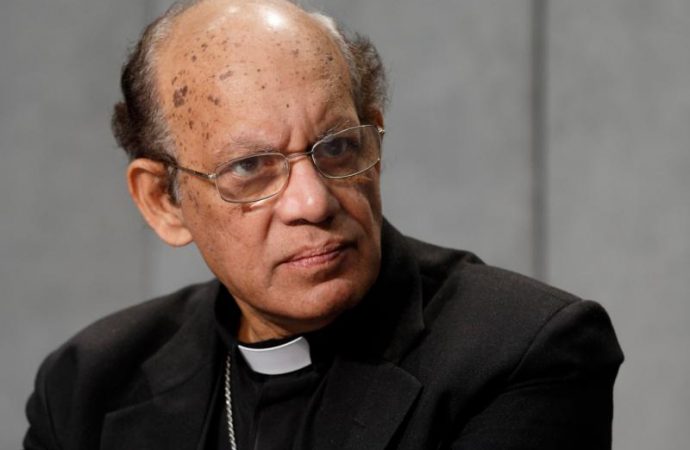Indian Prelate Wary of Over-emphasizing Abuse Crisis in Synod Document
By John L. Allen Jr. and Ines San Martin
A leading Asian prelate in the 2018 Synod of Bishops has said that some bishops from the developing world have been concerned that, driven mostly by the agenda of their Western colleagues, too much emphasis could be placed in the summit’s final document on clerical sexual abuse. Cardinal Oswald Gracias of Mumbai, India, a member of both the drafting committee for the synod’s final synod document and the pope’s “C9” council of cardinal advisers, said his concern was being true to the input coming from participants. “This was a question for us: You make such a big fuss about sexual abuse, and making it like the number one issue?” Gracias said. “To be fair to the synod, you can’t say that’s the number one thing.” “[The document] has got to be universally acceptable everywhere, we realize that,” Gracias said. “The statement should answer the needs of the United States, Ireland, Australia, but not just them.” “It’s an important issue for the Church, the Holy Father has called a meeting of the presidents of bishops’ conferences, it’s a critical issue for certain countries because of credibility etc., and we have our own issues in India,” he said. “But hold on, you’ve got be honest. It’s not that we spent hours and hours discussing this,” Gracias said. The Mumbai cardinal said he’s pleased that in a draft being discussed by bishops this week, sexual abuse is not given pride of place. “They’ve given it a longish section, and I went through it twice or thrice,” he said. “We put the critical issues not at the beginning but at the end of three [parts], so it’s not given the importance of being number one. It’s very clear to me that it should not have been.” Alarm over the prominence given to the abuse crisis, he said, has been focused not just on the synod’s final document, but also a message the bishops are expected to issue to the young people of the world. The 73-year-old Indian prelate spoke to Crux at the Vatican’s Santa Marta residence, where he’s staying during the synod and where Pope Francis makes his home. Concerns about over-emphasis aside, Gracias said he doesn’t feel the language on the abuse crisis in a draft of the final document being discussed by the bishops this week has enough “punch.” “It doesn’t put the victim at the center,” he said. “It says we commit ourselves to zero tolerance, but that’s a phrase, a slogan, and it doesn’t say what it means.” Asked about concerns over accountability for bishops who cover up sexual abuse cases, Gracias said he agreed a transparent disciplinary procedure could send a “good message” but also worried about the equity of such measures. “I often wonder if it’s fair to blame a bishop who’s 85, 86, for what he did when he was 65 and there a different mentality completely,” he said. “We did not know at this time this has got life-long effects, and that’s an important thing for bishops to understand at the February meeting, that sexual abuse can do irreparable damage.” Gracias also said he’s alarmed about a meeting Francis has called in February for presidents of all the bishops’ conferences in the world to confront the abuse crisis, in part because it’s not clear who’s organizing it. To date, he said, he hasn’t even received a formal letter of invitation. “It cannot be cosmetic,” he said. “Either it will be successful, or it will be a disaster for the Church. [The pope] isn’t going to call another meeting six months later, or two years later. No one is going to come and take it seriously. This is very important.” At the next meeting of the C9 set for December, Gracias said he intends to ask for clarification. He said he’s particularly concerned that the Pontifical Commission for the Protection of Minors, a body created by Francis to advise him on anti-abuse policy and led by Cardinal Sean O’Malley of Boston, so far does not seem to have a major role in putting the initiative together. “I expect the commission to be the one to follow up the matter afterwards, to be able to carry on,” he said. Asked if people should be worried about the February meeting Gracias said, “We should, we should.” “I think it’s important that all the presidents of conferences are conscious of the problem. They’ve got to take it seriously,” he said. “I would like every bishop to be aware this is a problem that could arise in his diocese, and he should be ready for it, to know what to do,” Gracias said. “We should have the same procedures.”
|
.
Any original material on these pages is copyright © BishopAccountability.org 2004. Reproduce freely with attribution.
